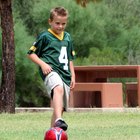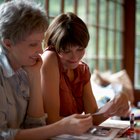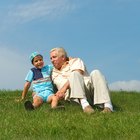
A car accident can traumatize more than those riding in the car. A parent whose daughter is in a car accident can experience trauma and require support and comfort from family and friends, regardless of whether the daughter survives or not. In the early stages following the trauma, the parent might struggle with the unexpected news, suffer shock, experience guilt related to any unresolved issues with the daughter, believe the accident was unfair and experience feelings or powerlessness and lack of control, according to Dr. H. Norman Wright, in “Crisis Counseling: What to Do and Say During the First 72 Hours.” You can provide comfort to the parent.
Step 1
Be there for parent whether she is a friend, acquaintance or family member. You don’t have to know the correct words to say or have all the answers, according to Dr. Joseph M Carver on his Ask the Psychologist website. Your presence is often enough to let the parent know that you care. Express your grief about the accident, if that is your honest emotion. If the parent is crying or showing other signs of sadness, worry or grief, you can hold or pat her hand, or offer a tissue to show active support.
Step 2
Let the parent talk about the accident or the daughter if he is so inclined. Sit and listen as the story spills out. Keep your advice to yourself unless the parent asks for it. You might hear the story multiple times, but the individuals often work through grief and trauma by retelling the story over and over again, according to an August 2010 publication from the Harvard School of Medicine.
Step 3
Ask the parent if there is something you can do to help and then follow through with whatever you agree to do. This might include preparing a meal, babysitting the parent’s or the daughter’s children while arrangements are made to deal with the results of the accident. You might also fetch clean clothes or other supplies for the parent or daughter.
Step 4
Share your memories of the daughter if she died or suffered permanent injuries in the car accident so the parent knows that there are others who have fond memories of the daughter. You could write a note sharing those memories so the parent can have them to read again later, suggests the August 2010 publication from the Harvard School of Medicine.
Step 5
Continue to check on the parent in the weeks and months following the accident, especially on special days such as the daughter’s birthday, Mother’s or Father’s Day and the anniversary of the event. Let the parent know that you were thinking of her on that day and wanted to express your love and compassion. You might offer to take the parent out for a meal, for a walk in the park or to visit other family members.
Step 6
Ask the parent if there is a charity or organization to which you can contribute in the memory or honor of the daughter. Provide a positive way to remember the daughter.
Related Articles

Activities to Help Kids Deal With Grief

How to Deal with Someone Who Has Lost a ...

How to Memorialize on a Death ...

How to Celebrate a Deceased Wedding ...

New York State Supervised Visitation ...

How to Make a Memory Book for a Gift

Memorial Gifts for the Loss of a Mother

Things to Do to Honor the Birthday of a ...

What to Say to My Mother on Her Wedding ...

Sayings to Cheer Someone Up Who Has ...

How Do I Find Out the Tax ID Number for ...

Sympathy Gifts for a Mother Losing Her ...

Ways to Honor a Sibling's Death on His ...

How to Get a Marriage License in Guam

What Is a Caregiver's Authorization ...

How to Cook Hominy in a Slow Cooker

How to Say Thank You in a Loving Way to ...

How to Deal With Adult Children Who ...

How to Help a Long Distance Friend Deal ...

How to Find School Records for Family ...
References
- Crisis Counseling: What to Do and Say During the First 72 Hours; Dr. H. Norman Wright
- Ask the Psychologist: What Do I Say to a Friend After A Severe Accident?
Writer Bio
Rev. Kathryn Rateliff Barr has taught birth, parenting, vaccinations and alternative medicine classes since 1994. She is a pastoral family counselor and has parented birth, step, adopted and foster children. She holds bachelor's degrees in English and history from Centenary College of Louisiana. Studies include midwifery, naturopathy and other alternative therapies.
Photo Credits
Barry Austin Photography/Photodisc/Getty Images